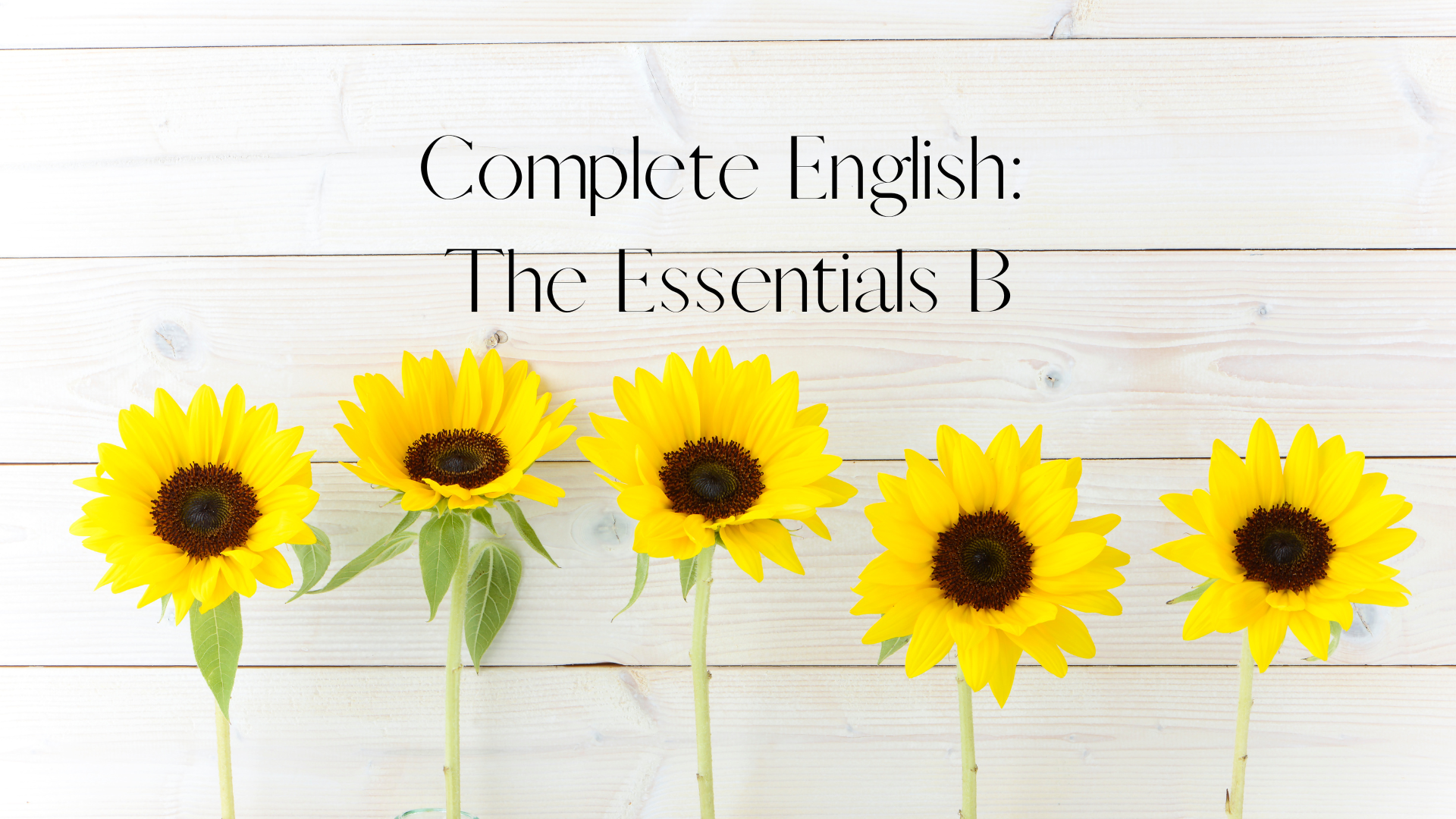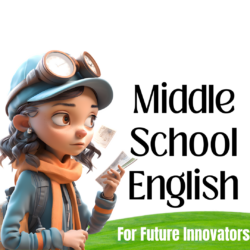Description
Embark on a literary adventure with this upbeat class celebrating the magic of storytelling and the beauty of language!
In this complete semester ELA course, we’ve carefully crafted content that will ignite a love for literature while honing essential writing skills. We’ll explore literary elements, write unique short stories, and embark on book discussions that will teach students to think deeply about literature. We will also unravel the mysteries of literature through thought-provoking Socratic Seminars that inspire profound insights into human experiences. Finally, we immerse students in the realm of poetry, where they learn to analyze and appreciate poetry’s nuances while crafting their own creative verses. With a regular dose of captivating choice novels and opportunities to shine in individual “Book Talk” presentations, this class promises to be a fun journey through the realms of imagination and creativity.
Snapshot of Student Output:
Students will write a full-length short story, complete with theme, motif, symbolism, figurative language, and well-developed characters. They will also explore poetry, reading multiple poems from different eras, learning how to approach poetry, reading it analytically, discussing it, and writing about it. They will complete 26 pages of grammar and will work for 26 sessions, writing sophisticated sentences that are grammatically correct but also have some style and variety. They will revise and edit their writing after getting feedback on everything, both in-class writing and what they complete for homework. Reading novels of their choice for 100 minutes each week, students read for pleasure and learn who they are as readers. They will also read poetry, seven nonfiction pieces, two fables, and five short stories. Last, they will give two class presentations and participate in class discussions and two Socratic Seminars. Wowza!
The Way We Roll:
Student Motivation & Accountability–Learners participate in interactive lessons during their homework time, which includes quizzes on their reading. We use “workshop time” in class so students will write while the teacher “visits” them on their Google Document. Once we started using this method, we saw nearly a 100% completion rate in student writing! We implement other measures to hold them accountable for their learning, like asking them to verbally give answers if they stop using the chatbox, or telling them to send an “IDK yet” (I don’t know yet) in the chatbox if they can’t yet answer a question. We want to honor the investment parents make in this class and the time students spend. The goal is to build skills and learn! That means students are working, thinking, and writing. Active engagement is the key to success in this class.
Public Speaking & Cameras–The instructor intentionally teaches communication skills and norms. For example, the “dominator” will learn to give others a chance to speak and will even learn to involve others to help bring forth their ideas. The quieter students learn to take risks and put themselves out there because they have good ideas and important things to say. These skills are taught through various methods, including speeches, presentations, and Socratic seminars, which often become the favorite for students. We also talk about how an online community is established, and students are encouraged–but not forced–to keep their cameras open. This helps all students feel connected to each other as a community of learners. It also helps the teacher picture their faces when reading their writing. They naturally get more attention from their teacher when their camera is on because the teacher’s eyes are drawn to faces, not empty black boxes. In fact, students who don’t have their cameras on are sorted last in the list of students and sometimes, Zoom even hides them! Keeping the camera on is a learning strategy and improves engagement. Also, we feel closer to each other when we see each other. Trust us. ?
Homework–Students can expect to have homework after each live class. They will work 15-45 minutes, depending on the assignment and how quickly they work. Students will read for 100 minutes a week (not in addition to our class novels). We want them to fall in love with books! Teachers give authentic and constructive feedback on students’ work that helps them correct their mistakes and fine-tune their skills. Students study grammar through daily mini-lessons and practice sentence writing and using various sentence starters. Students will read for 100 minutes a week. We want them to fall in love with books!
Graphic Organizers–Students need graphic organizers to help them see the structure of a paragraph or essay and the writing process. We also use them to guide their reading of a class novel. This is how they learn to develop coherent ideas. They don’t figure out how to do this magically; the graphic organizers and the intentional, explicit teaching help them learn the skills!
Student Mastery–Each class includes explicit, direct instruction with teacher modeling. Students are guided toward mastery of multiple writing skills and understandings so that they grasp the concepts and become independent. Students are held to a high standard of academic writing, including the use of grammar and the construction of sophisticated sentences.
Teacher Feedback–The back-and-forth work between a student and teacher significantly benefits a student if it is done well. We follow best practices in this area with how we design class time, assignments, and routines. According to Pennington Publishing, effective writing feedback (or grading) is:
• Specific, not general
• Immediate, not postponed
• Routine with a revision / feedback cycle
• Explanatory
• The right amount
• Targeted to the most critical issues
• Varied (written, audio, and video comments)
• Holding students accountable
Grades:
We give specific and authentic feedback on student writing through the teacher tab of the classroom and on Google Docs. We also give feedback orally and with the chatbox immediately in class. If you require formal grades, please ask ?? ??? ????????? ?? ??? ????????, and we will provide them.
Overview:
-
MODULE 1 (1 week)–Introductions and creating a positive learning environment.
Students will:
— prepare to use technology (Google Docs, KamiApp–this one is optional)
— learn class procedures
— Learn how to give a Book Hook
— Learn how to summarize a book (a narrative of any kind, really) -
MODULE 2 (5 weeks)
Students will:
— read short stories and watch short narratives with an analysis of literary elements
— write concise summaries of narratives, identifying important literary elements
— write a short story, creating a unique world, characters, conflict, suspense, tension, climax, resolution, theme, and even a motif
— read a choice novel regularly and consistently
— participate in class discussions about books and literature
— individually give a classroom presentation, a “Book Talk” -
MODULE 3 (4 weeks)
Students will:
— read multiple poems from different eras, learn how to approach poetry, read it analytically, and discuss it
— respond to poetry with an argument piece
— write their own book of poems
— read a choice novel regularly and consistently
— participate in class discussions about books and literature
— individually give a classroom presentation, a “Book Talk” -
MODULE 4 (3 weeks)
Students will:
— read short stories and learn to analyze literature
— have three Socratic Seminars
— read a choice novel regularly and consistently
— participate in class discussions about books and literature
— individually give a classroom presentation, a “Book Talk”






Reviews
There are no reviews yet.